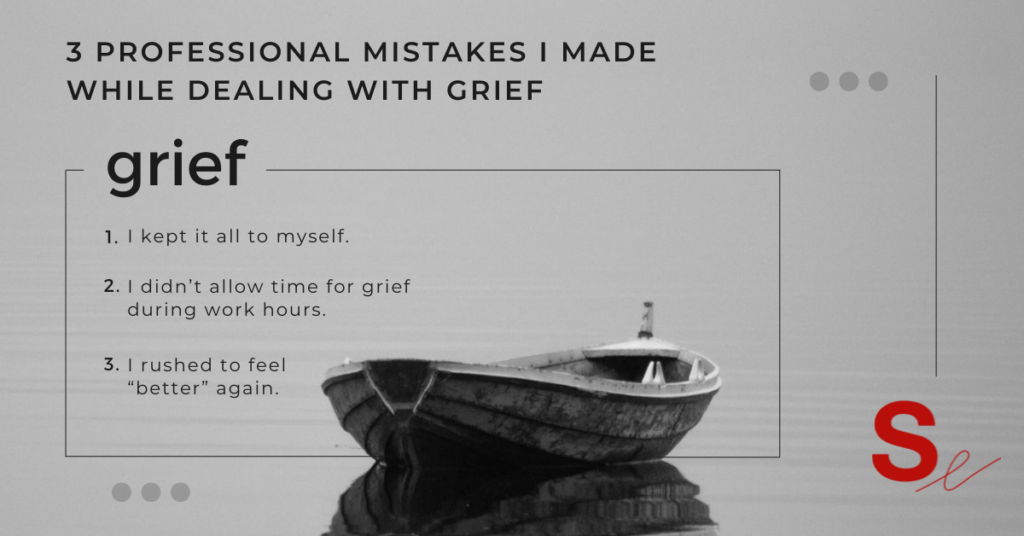Last summer was the best of my life. I had recently gotten married, moved into our newly renovated home, and was looking to make a career change.
About a month into my career search (and my marriage), I received a text that my dad – my confidante and hero – was headed to the Emergency Room. They suspected COVID, but it seemed so unlikely. We were 17 months into the pandemic, and as a pastor, he’d been in high-exposure situations for the entirety of the pandemic. Why would he get it now?
That text began a six-week journey of hospital visits, tests, and an educational onslaught of medical terms I never wanted to know. Despite my career in crisis communications, informing relatives, friends, and our church community of medical updates was a crash course like I’d never before experienced.
Despite his excellent physical state before the virus and the best professional care available, my dad passed away one year ago this month.
And two weeks after the funeral, I started a new job here at Strategic Elements. It was the best professional move I could imagine, and it happened during the worst time of my life.
Here are three mistakes I made while dealing with grief.
1. I kept it all to myself.
Grief is tricky. It can make a person feel vulnerable, likely the opposite impression you want to make on new (or seasoned) co-workers.
It also feels like a full-time job. While the funeral was over, my family and I were overwhelmed by the pile of details that needed our attention. We had to pick a headstone, figure out insurance, and finagle medical bills. Perhaps even harder was cleaning out Dad’s church office (where he’d ministered for 25 years), deciding what to do with clothes that still smelled like him, and finding ways to carry on with life.
So, I kept it all to myself. I didn’t tell my direct report and worked to manage my emotions, my personal life, and the duties of a new job. And I felt so alone.
If I had been honest with my manager, I am confident we could have assembled a plan to adjust expectations and reduce stress while I came to terms with my loss.
2. I didn’t allow time for grief during work hours.
A month after I started the new job, I dug through old contacts to find the name of someone I’d previously connected with on a project. I couldn’t find it for the life of me, but I knew the individual’s grandpa attended my parents’ church.
I had five minutes before I had to jump on a meeting.
So, I did what was second nature. I picked up my phone, clicked on my favorites list, and clicked Dad’s name. It took two rings before I remembered that he wasn’t going to answer.
Emotions hit hard. But I swallowed harder. I took a deep breath, pasted a smile, and joined the Teams call. “Hi guys! I’m fine, how are you?!”
Looking back, my meeting wasn’t that important. I could have moved it. Or it could have gone on without me. And I certainly didn’t need to be the one cracking jokes.
My failure to allow time to process and grieve only made me – and therefore my team – less healthy.
If you’re walking through grief, add breaks to your schedule that allow you the space and time to experience your loss. And when those moments happen – and they will – recognize that it’s okay to prioritize yourself and your emotional health. No one worth their salt will think less of you for it.
3. I rushed to feel “better” again.
I’ve always taken pride in my ability to be efficient. I strive to be detail-oriented and communicate clearly while taking as little of others’ time as possible. My grief felt like an unwelcome intruder in my tidy workflow.
My solution? Each morning, I’d eat my toast and assert to get through the day without crying. I’d look in the mirror and will myself against feeling. I’d put on my makeup and paste on a strong and professional front.
But it didn’t work. Sure, the world felt less upside-down with time, but I realized I wasn’t processing my grief. And I certainly wasn’t helping the process by refusing my feelings.
Grief is circular. Some days may be tolerable, and others overwhelming. If you’re confronting grief and feel sad, allow yourself to feel sad. If other days feel normal, don’t feel guilty about that, either.
In my grief journey, Lysa TerKeurst’s words have felt like a North Star. She writes this in her book It’s Not Supposed to Be This Way: Finding Unexpected Strength When Disappointments Leave You Shattered”:
“Feeling the pain is the first step toward healing the pain. The longer we avoid the feeling, the more we delay our healing. We can numb it, ignore it, or pretend it doesn’t exist, but all those options lead to an eventual breakdown, not a breakthrough.”
Grief is part of our journey through humanity and our professional lives. Lean into the resources available to you at your job, and work to advocate for yourself. And if the grief seems too heavy, get help from a licensed counselor. The Mental Health Services Administration National Helpline (1-800-662-4357) provides free information on support available in your area. You are not alone.
Kristin Wileman Sheldon serves as Director of External Affairs at Strategic Elements. Contact Kristin at ksheldon@strategicelements.com.


